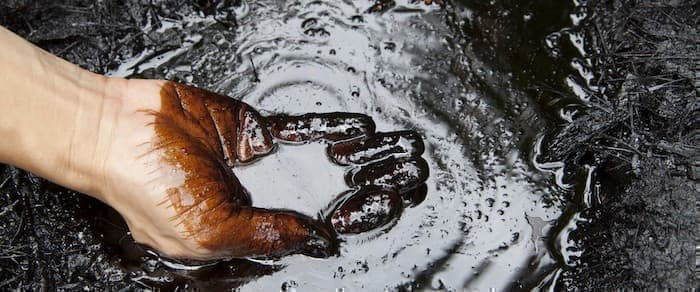Hurricane Ida has left a lasting wake of destruction and chaos along the Gulf Coast. The hurricane, which was a category 4 storm when it initially made landfall in Louisiana late last month, killed more than 60 people, caused widespread blackouts and severe flooding as far north as New York and New Jersey, and took out a key United States oil and gas hub. Now, more than a week after Ida swept through the South, more than 80% of oil production capacity in the Gulf of Mexico is still offline and the United States Coast Guard is investigating reports of 350 separate oil spills and 2,000 reports of pollution in the Gulf’s waters. A Coast Guard statement says that the organization is currently conducting flyovers off of the Louisiana coastline to look for oil spills to report back to federal, state, and local authorities so that they can put together and dispatch cleanup crews accordingly.
So far, the Coast Guard reports that it has checked out 800 of the 2,000 reports. “Coast Guard teams throughout the area are working overtime to respond to every report that comes in,” said Captain Kristi Luttrell, one of the leaders in the Coast Guard’s Hurricane Ida response. “We take each report seriously and are responding to ensure we mitigate threats to the environment.”
The source of one of the largest oil spills, causing a streak kilometers long, is no longer active, but new leak sources are still being discovered. Pipelines damaged by the storm are leaking throughout the Gulf, although so far it seems that none of the spills have reached the Louisiana coast.
Related: Record-Breaking Energy Prices Could Soar Even Higher In Europe Hurricanes and oil spills are nothing new for the Gulf Coast. Hurricane Katrina caused a rash of environmental disasters including widespread pollution, and the Gulf Waters bore witness to the worst maritime oil spill in history, 2010’s Deepwater Horizon. Despite this history, it would seem that the Gulf Coast oil industry has not learned from its past mistakes. NOLA.com has reported that the projections for pollution caused by Ida are predicting a worse outcome than in the aftermath of Hurricane Katrina in 2005.
The myriad oil leaks caused by the Ida storm paint a disturbing picture of a lack of preparedness and storm-proofing that could have potentially disastrous environmental ramifications, especially as severe storms become more commonplace as the world gets warmer and weather patterns change. What’s more, the oil and gas industry has created a lot of its own current vulnerability, as it has cleared the marshlands that once acted as a natural stormbreak for the Louisiana coast.
Related: Iraq Secures New Investments In Its Booming Oil Industry
The lasting impact on this oil and gas hub is not just environmental, it’s also economic. As huge amounts of oil and gas production capacity remain offline, United States consumers are likely to bear the burden of rising oil prices at the pumps. Rising fuel prices could even stand to derail the country’s post-pandemic economic recovery on the whole, hitting consumers at a particularly vulnerable moment. The oil losses from Hurricane Ida are historically bad. “Hurricane Ida's damage to U.S. offshore energy production makes it one of the most costly since back-to-back storms in 2005 cut output for months, according to the latest data and historical records,” Reuters reported this week.
The recovery from Hurricane Ida is going to be a long road for the oil and gas industry, but it’s likely going to be an even longer road for the fragile ecology of the Gulf waters and shores. What’s more, it’s almost certainly going to happen again unless drastic protective measures are taken before next year’s hurricane season.
By Haley Zaremba for Oilprice.com
More Top Reads From Oilprice.com:
- Auto Giants Slash Production As Chip Shortage Worsens
- Hurricanes Raise Risk Of Oil Spills In Gulf Of Mexico
- The Top Two Commodities To Watch In The Short Term


















